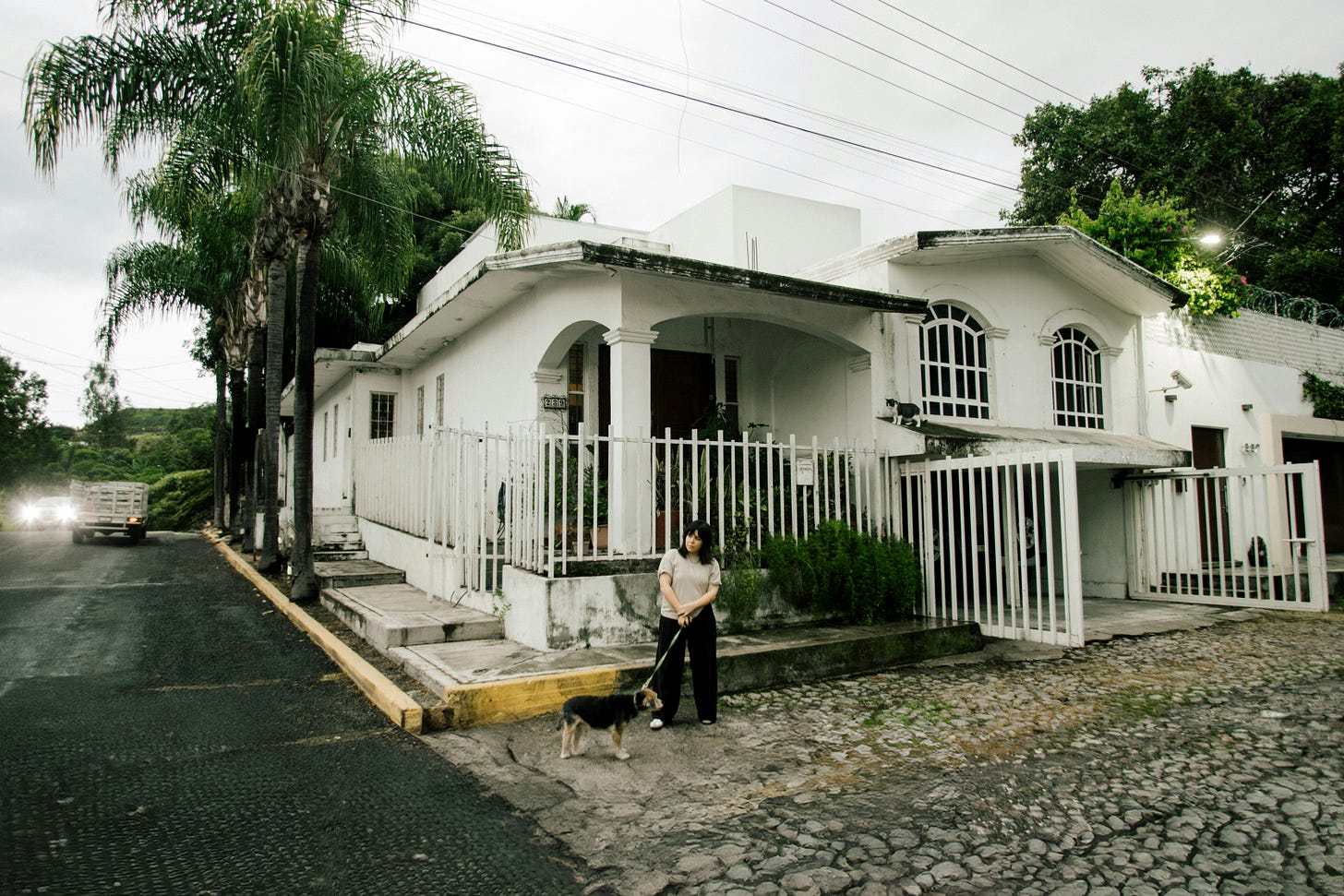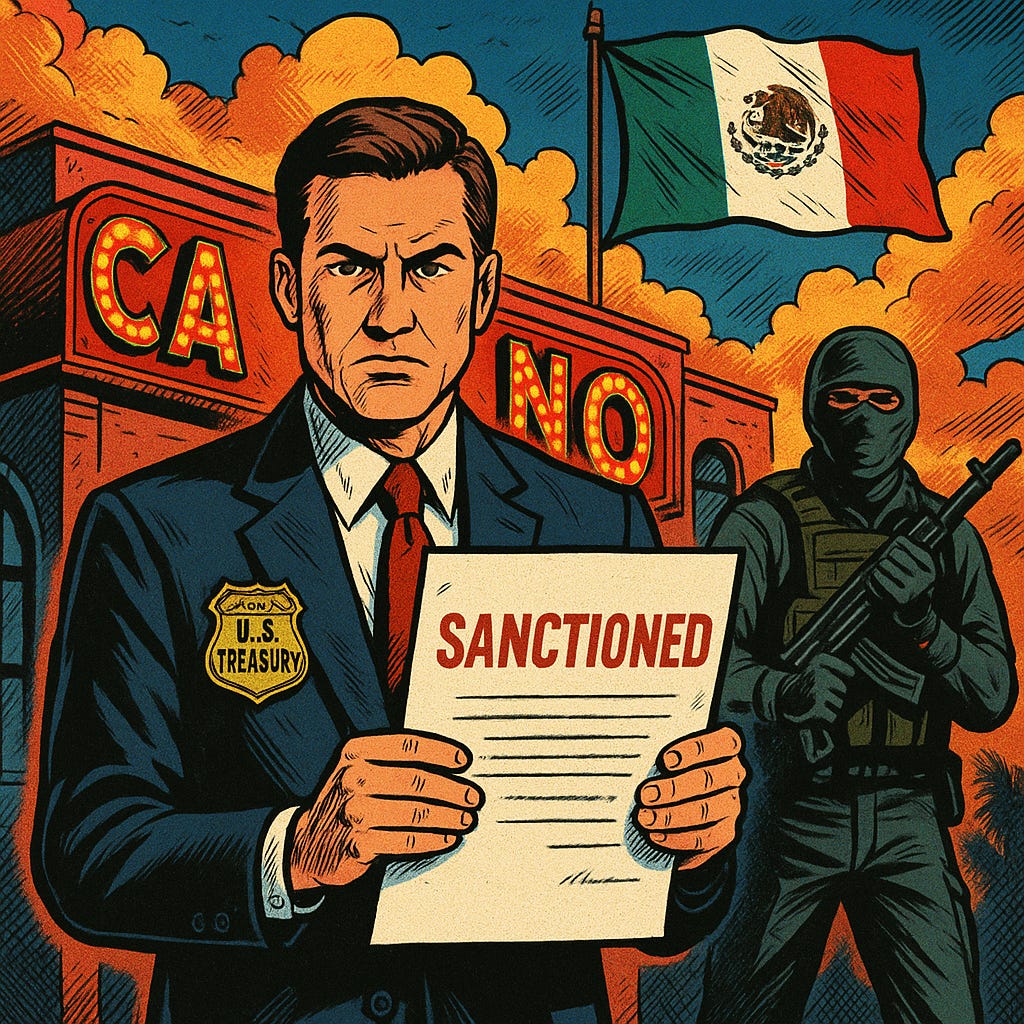
The U.S. Treasury is sanctioning casinos in Mexico for illicit money-laundering enterprises connected to drug cartels. At first glance, this might seem like just another move in the long and tired “war on drugs.” But it is more than that. It marks a major financial offensive aimed at the arteries of cartel power, an attempt to cut off the flow of dirty money that sustains an entire shadow economy inside Mexico.
This latest crackdown is part of a joint U.S.-Mexico initiative that has led to the closure of 13 casinos in states including Sonora, Sinaloa, Baja California, and Jalisco. These regions have long been embedded in the architecture of cartel operations. Among those targeted are casino chains allegedly linked to the Sinaloa cartel, one of the most powerful and globalized criminal enterprises in the world. The U.S. Treasury’s use of the Office of Foreign Assets Control (OFAC) designations and the PATRIOT Act’s Section 311 is a serious escalation. It weaponizes the dollar and international banking against what is essentially a sovereign criminal economy operating parallel to the Mexican state.
What makes this moment even more significant is the timing. Mexico is co-hosting the 2026 FIFA World Cup alongside the U.S. and Canada. The international spotlight is about to land on a country where cartels not only battle for territory, but also fund entire sectors of local economies, raise paramilitary armies, and routinely outgun or outmaneuver law enforcement. The casino industry, booming thanks to tourism and the rise of online gambling, offered the perfect front for money laundering with high cash volume, low transparency, and just enough legitimacy to operate in plain sight.
The deeper question is whether this new wave of regulatory action will amount to meaningful reform or become another performance in the theater of anti-cartel policy. Mexican regulators have a long history of being outmatched or compromised. And the cartels don’t vanish when you cut off one income stream. Instead, they mutate. They reemerge in avocado farms, fuel theft networks, real estate, or fintech.
But none of this happened in a vacuum. The cartels are not a uniquely Mexican pathology. They are the inevitable product of a much longer imperial project that dates back to 1848, when the Treaty of Guadalupe Hidalgo sliced Mexico in half and began a new chapter in U.S. regional dominance. In the decades that followed, American capital laid down railroads and extracted minerals, controlling the economic arteries of what was nominally a sovereign state. By the early 20th century, Mexico began pushing back by nationalizing oil under President Lázaro Cárdenas in 1938 and trying to chart its own course. But sovereignty came at a price.
In the 1980s, Mexico’s debt crisis, triggered by falling oil prices and rising U.S. interest rates (thanks to Federal Reserve Chair Paul Volcker’s shock therapy), left the country bankrupt. The International Monetary Fund swept in with structural adjustment programs that gutted public services, privatized state assets, and destroyed smallholder agriculture. NAFTA finalized the process in 1994. U.S.-subsidized corn flooded Mexico, bankrupting millions of rural farmers and driving a generation into urban slums, undocumented migration, or cartel recruitment. The cartels became, quite literally, the employers of last resort.
From that perspective, the casino closures are just another domino in a long line of consequences set in motion by imperial design. The U.S. helped build the system through trade deals, deregulation, and financial liberalization, and now attempts to discipline the Frankenstein’s monster it helped create.
According to a 2021 AEI report, over 80% of Mexicans believe corruption is widespread in their government, and trust in political institutions has eroded. Former President Andrés Manuel López Obrador (AMLO) campaigned on anti-corruption but has faced criticism for selectively prosecuting opponents while shielding allies. His Financial Intelligence Unit had increased account freezes and investigations, but structural problems persist.
The Institute of Labor Economics (IZA) offers another lens. Their work on economic shocks and crime describes two forces: the opportunity cost effect (crime decreases when legal jobs rise) and the rapacity effect (crime rises when illicit profits surge). Mexico has experienced both. When legal pathways close through economic collapse, privatization, or violence, the cartels step in. The cartel economy is not just resilient, but responsive. When the state falters, the shadow state steps in.
It is also important to understand that both Democratic and Republican administrations play their part. Biden’s Treasury may use the scalpel of sanctions; Trump threatened to bomb cartels and declare them terrorist organizations. But the machinery of influence enforced through financial surveillance, trade policy, and cross-border enforcement remains intact regardless of who sits in the Oval Office. What differs is tone, not trajectory.
So what happens now? Maybe casinos are cleaned up. Maybe a few cartel networks shift underground. Maybe the World Cup will come and go without a hiccup. But the deeper system of interlocking gears of empire, capital, and crime remains. Until we reckon with that, the fight against cartels will continue to play out like a rigged game.
When we understand America as part of a larger global history of empire (rather than an exceptional experiment), we begin to see our role more clearly.
Only then can we imagine new solutions, rooted not just in control, but in justice, equity, and global accountability.







